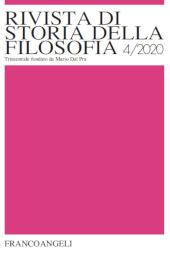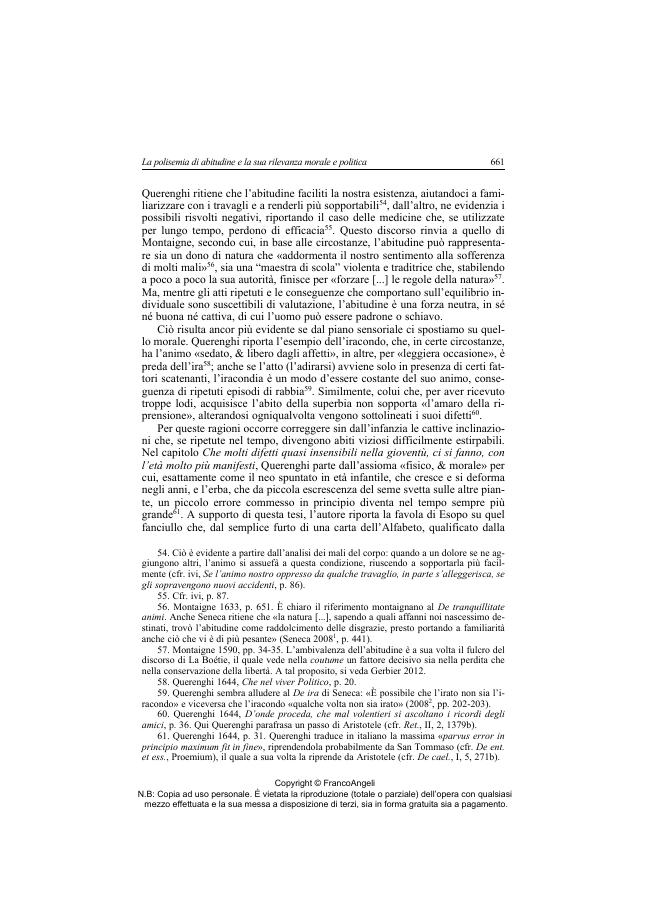2020 - Franco Angeli
Article
Digital Version
Download | Copy/paste | Printing
La polisemia di abitudine e la sua rilevanza morale e politica nei Discorsi di Flavio Querenghi
653-668 p.
- The aim of the article is to examine Flavio Querenghi's theory of habit as it is presented in several chapters of his Discorsi morali politici et naturali (1644). The Author clearly distinguishes the concept of "abitudine", the mechanism of repetition which favors the formation of habits ("abiti"), from that of "costume", the set of cultural rules accepted and interiorized in different ways by different people, in order to explore the question of the primacy of nature over culture. Despite the fact that the original condition of humankind has been obscured by civil life, in which citizens are accustomed to rules established by political and cultural authorities, it survives in uncivilized forms of life, in which people live according to nature, and it is continually rediscovered by human reason.
- Querenghi brings the classical and modern theories of habit together, in particular those of Aristotle, Plato, the Stoics and Montaigne, with a view to demonstrating the need to do away with constraints and replace bad habits with good ones in private and public life. [Publisher's text].
-
Information
ISSN: 1972-5558
KEYWORDS
- Querenghi, habit, customs, nature, solitude
-
In this issue
- Benedetto Varchi e l'averroismo
- La polisemia di abitudine e la sua rilevanza morale e politica nei Discorsi di Flavio Querenghi
- Una religione assai materiale : l'Epistola altera di Henry More e alcune disputationes antisociniane in area tedesca
- Il re e la giustizia : monarchia medievale e distribuzione dei poteri nel pensiero politico di Montesquieu
- Il Faktum der Vernunft : tra uso pratico della ragione e uso trascendentale delle categorie
- Hartmanniana
- Comment Levinas a approché Hegel
- Recensioni
- Schede
- Indice dell'annata 2020



